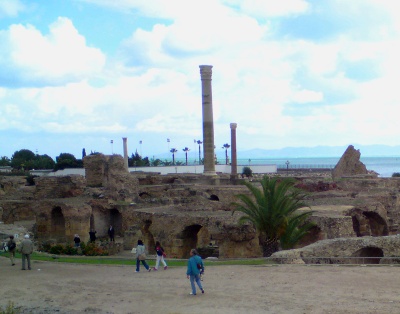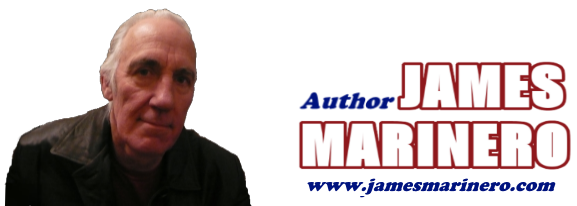Researching Thriller And Spy Novels – North Africa
I have written elsewhere about the importance of fact checking. It tends to be undertaken mainly at the editing stage. Of course, if a book’s plot relies heavily on the accuracy of a particular fact, then the checking needs to be done very early on in the writing process. Good location research, preferably on-the-spot, is essential too, if an author of spy novels (or other thrillers for that matter) is to capture the feel of a location and write with authority about that place.
In 2010, I was sailing in Morocco and Tunisia, just before the revolution in Tunisia. In fact, we were there just a month before it started. We were moored in the marina in Sidi Bou Said, which is hard-by the Presidential Palace, ringed by armed guards.
The palace had its own private harbour with an exclusion zone around it. Immediately to the south of the palace are the ruins of Carthage, and we spent a fascinating afternoon wandering the area, overlooked by the sentries on the palace walls a couple of hundred yards away (the palace is on a hill).
Here’s a picture I took from Carthage (not good quality) – the white wall in the background surrounds the palace, and the wall of the private harbour is just visible to the right of that.

Two months later the palace was ransacked, and the President had fled to Saudi Arabia.There was a great sense of history there, but the feel of Tunisia was coloured by the prevalent official culture,which was corrupt. Shortly after I arrived, I sat in my cabin whilst a customs official asked me, in French, if I had any gifts for him.
Now, it sticks in the craw when faced with sort of behaviour, but a bottle of whisky or a few packets of cigarettes are not a lot to us. The downside is that if you do not play the game then the bureaucratic process moves very slowly indeed. Very slowly.
Rubber Stamps
Getting that official entry rubber stamp on your documents can take a long, long time if you don’t play ball with them. Some yachtsmen refuse to play, and waste a lot of time kicking their heels. I don’t like that culture, but life is too short so I play the game. It does give an author the extra edge when he writes about it – that feeling of threat and discomfort experienced as the power of these officials is made clear.
It was this very culture that led to the uprising in Tunisia, when a young man with a vegetable stall set fire to himself in the face of demands for a bribe for a licence.
The name of Mohamed Bouazizi will be remembered for what he started in North Africa and the Middle East, just as the name of Jan Palach is remembered in Czechoslovakia.
Kafkaesque
Earlier in my career, I worked in Russia on and off for a couple of years (this was during Yeltsin’s time) and that was a surreal, Kafka-esque experience. Traveling and working in countries which are struggling under oppressive regimes (or the hangover of such regimes) is very much to be recommended for aspiring thriller authors. Though it has to be said that some very, very good thrillers are set in Washington or London, with no other countries involved. I guess it’s the issue of absolute power and having no control over one’s situation that is frightening to me – and that can occur anywhere.
Although I haven’t worked in Sicily, I have spent several months there, and was always aware of the insidious nature of Mafia influence – just another form of oppression and corruption.
Sense of Place
So, to write convincingly about a location, one has to have developed a strong ‘sense of place’, just as to write well about marriage breakdown, one has to have experienced it.I’ve been fortunate that this year has added research in the Ionian Islands, Sicily and Malta, and I hope to convey my sense of those places in ‘Sicilian Channel’, and, of course, including North Africa.
Authors of thrillers and spy novels also have to write about things they may not themselves have direct experience of – for example, torture. I have written about it, having read extensively around the subject. However, there are limits to what I’ll experience directly in the course of research!
Here are some location pictures I took at Carthage – an ideal location for a chase sequence in ‘Sicilian Channel’. The quality isn’t brilliant, but the sense of history and place is immense – at least to me. And, as it did here, location atmosphere can trigger spy novels plot ideas and scenes.



